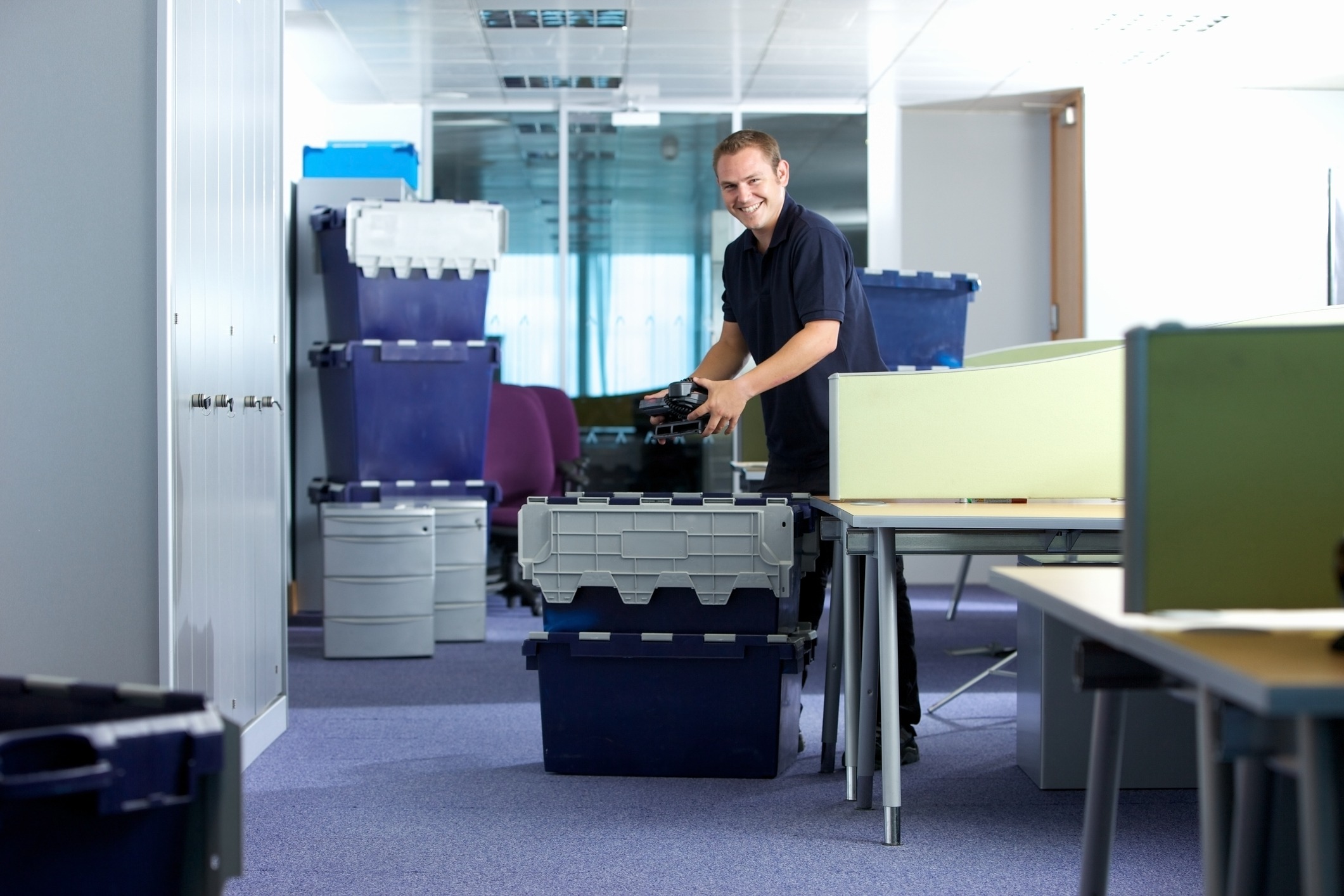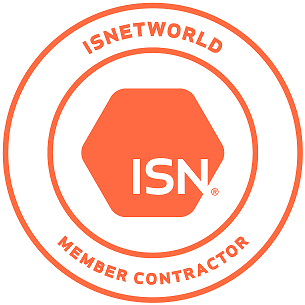15 Tips for Relocating Your Business to a New Location
There are many reasons your business may need to relocate. Cost savings, better access to resources or talent, government incentives or regulations, better quality of life, you need more space, or all of the above. Whatever the reason, a corporate move is complex and challenging, but with the right strategies and guidance, they can also be opportunities for growth and improvement. To get started, we’ve outlined the best tips to make your business relocation as smooth as possible.
- Planning and Preparation
Fail to plan, plan to fail has never been more relevant than when considering a business relocation. Planning and prep work are key to a successful, stress-free move. A well-thought-out plan can help minimize disruptions to operations, reduce costs by avoiding last-minute changes, and identify potential delays such as weather and shipping. You’ll need to create a detailed relocation plan. Here are some tips for planning and preparing for a corporate move.
- Start Planning Early – The earlier you can start your business relocation plan, the better. Even smaller corporate moves across the street will need many arrangements made, and those made ahead of time will allow you to deal with unexpected crises. A corporate move to-do check list will be invaluable.
- Create a Budget – We’ll discuss that below.
- Form a Relocation Team – Part of preparing for a move involves creating the best team to help relocate the company. Your team should have a representative from every department. Other higher-level stakeholders will need to be updated regularly.
- Develop a timeline – A timeline is crucial to monitor the move. A realistic timeline will also help when creating the budget. If a timeline is too short, it could drive up costs. The timeline can also help determine when the best time to move is and further keep costs down (summer vs. winter for example).
- Communicate with all employees – Never leave employees in the dark or give them short notice of a corporate move. Depending on the type of move (across the country or across town), three to six months is reasonable, or earlier if need be. Be direct in your communications and send out regular reminders of upcoming events that need their response or action. When communicating with employees, be sure to follow these guidelines:
- Communicate early and often.
- Be clear with dates and action items.
- Use multiple channels of communication. Email, company newsletters, create a web page dedicated to the move on the company intranet etc.
- Provide support to employees or have meetings to discuss concerns.
- Be flexible when possible.
As you can see, planning and prep work for a relocation plan is extensive. There is a lot on the line. At BRG Office Movers, we remove the complexity out of your move. Our team of project managers handle all the details and go over the process with you step-by-step. Contact us for a free quote.
- Budgeting
Having a solid budget for your office move is crucial. Even before you receive the go-ahead for the office transition, you should be starting a relocation budget. Without one or one that isn’t comprehensive, costs can spiral upwards quickly. Be sure to include all of the costs associated with a corporate relocation, including these areas:
- New office space
- Employee relocation
- IT infrastructure (servers, new networking equipment, software, etc.)
- Change management or new training for employees
- Changes to insurance, legal fees
- New permits or upgrades in security
- Storage
- Branding, new signage
- Location Selection
When choosing your next location for your business, there are several factors to consider. These include:
Cost: Commercial space costs can vary greatly from city to city and can be one of the biggest concerns when choosing a location. Businesses will need to create a cost analysis to find the most beneficial options.
Target Market: Identify your target audience and their demographics. If most of your customers are in Ohio, it makes sense to move your location there. Factors to consider include age, occupation, gender, income levels, and other demographic information.
Competition: Additionally, businesses should know where their competition is. Too much competition in an area could make it difficult for you to attract business.
Accessibility: Make sure your new corporate location is easily accessible to both employees and customers. Accessibility is crucial for businesses that depend on foot traffic or public transportation.
Zoning Laws: Businesses must check the laws to ensure they can relocate and do business there.
Taxes & Incentives: Compare tax rates in various locations and opt for tax-friendly areas. Also, some states and cities offer incentives to businesses that relocate there. Research any of these to find out if you qualify.
It’s also a good idea to visit the location in person and get a feel for the area. Make sure you consider future growth of your company. Will you grow out of the space in a year or two? At BRG Office Movers, we can help with these questions and more. Contact us for a free quote.
- Legal and Regulatory Considerations
Businesses must be aware of regulations that concern their type of business. These could include environmental laws, food safety, and manufacturing regulations. If you don’t have an attorney, you’ll need one who can specifically address the legal and regulatory factors that apply to the business location. Other legal considerations include:
- Lease agreements
- Zoning Laws
- Building Codes
- Labor Laws
- Tax Laws
- Intellectual Property Laws
Regarding legal and regulatory issues, it is best to do this well ahead of the move. Meet with your attorney early and inform them of your business relocation plans.
- Notify Stakeholders
It’s imperative to notify all stakeholders of the upcoming business relocation. Identify who these stakeholders are. It’s more than just employees. The upcoming move may affect suppliers, customers, investors, partners, vendors, and other individuals or organizations. Transparency and open communication are extremely important in a business move. Follow these steps to make sure everyone is kept in the know.
- Develop the Communication Plan
A communication plan should roll out in stages that match the progression of the move. Not all information needs to go out to all parties at once. You’ll need to decide what information goes out and to whom. Will you have one person in charge of all communications or separate it according to each group? Lastly, create a communications timeline for when and how this information will go out.
- Create Communication Materials
Email templates, letters, social media posts, hard copy flyers, will need to be created to help communicate the relevant information your stakeholders will need. Save the press releases for after the move.
- Communicate with Stakeholders
Following your communication timeline, send out the appropriate communications to stakeholders. Communicate early and often to keep everyone informed and well aware of schedules and happenings. Communication is a two-way street so be sure to answer questions and concerns. This can be done on the company Intranet or private social channels.
- Provide Guidance and Support
Moves can be stressful. Be sure to designate a person on your relocation team to offer support. If relocating employees support could be in relocation support or financial support and other means of assistance. It’s also important to be positive and enthusiastic. Schedule in person meetings if possible or other group sessions and highlight the benefits of the move and its positive impact.
- Technology and IT Infrastructure
Data migration, transferring of computers, peripherals, servers, and other technology equipment safely and securely can be one of the most anxious parts of a business relocation. Whether it is an entire data center or moving your employees’ computers, you should take every precaution when transferring assets. We recommend hiring a professional moving service to oversee your tech move to ensure minimal downtime.
As part of a business relocation, BRG Movers will create project timelines, a list of all IT equipment, and your vendors. In addition, we will:
- Backup all data
- Disconnect IT Equipment
- Pack and move equipment
- Set up test all IT equipment at new location
- Relocate data center and labs
- Decommission, liquidate, refurbish or recycle surplus assets and more.
Our services are designed to minimize your stress and any disruption to your business operations.
- Logistics and Moving Services
As you can see, there is a lot to a business relocation. BRG Office Movers has been in the business for over three decades. We know a lot about moving and how to do it efficiently with minimal downtime. When searching for a reputable company, we have some opinions. Consider these factors:
Experience – Whether it’s a start-up or a large corporation, your mover should have a proven track record of moving businesses of all sizes and scope.
Locations – A mover should have a large network of service providers that can be found throughout North America.
Services – Your business relocation partner should offer a variety of customizable planning, moving, and installation solutions that meet your needs for your move.
Technology & Tools –From moving tools for employees to project management solutions, assets, and warehouse management systems, your relocation company should have the highest quality tools and tech available.
Pricing – No two moves are alike, and relocation pricing should be customizable to your situation.
- Employee Transition
There are serval strategies that business owners can take when transitioning employees. Keeping employees informed early on and often can help morale and keep productivity up before, during, and after the move. Here are strategies to consider:
- Be honest and transparent to employees. This will help employees better prepare for the move and reduce anxiety.
- Provide support and any resources. Resources can be as simple as a moving planning guide or checklist, labels, and other supplies. Businesses should be supportive of employees who may find the move difficult. Additional resources could include relocation assistance or financial assistance to find new living arrangements.
- Remote workers will need the same level of transparency and communication. They may need assistance with new technology, hardware, software, or other technical support.
- Customer Communication
Again, businesses and stakeholders must communicate openly with their clients and customers about a company relocation. Leaving them in the dark could cost your reputation and a loss in business. You won’t be communicating with them on the same level as employees for example, but offering a timeline so they can anticipate impact on service. To offset any disruptions a business could offer discounts or other incentives. Follow up after the move to offer any additional help.
- Brand Consistency
Brand consistency is essential during a move. It helps to reduce confusion, maintain recognition, and protect the brand’s reputation.
- Inventory and Asset Management
Effective management of inventory, assets, and equipment during the move will aid in a smooth transition from one location to the next, and keep work disruptions to a minimum. All assets must be accounted for and tracked as they move from one area to another. Asset and inventory management is a thorough process that involves cataloging items tracking, and risk assessment of fragile items such as servers or medical equipment.
- Security Measures
Stringent security measures will need to be in place to guard equipment, data, and assets. A corporate mover will ensure that all your assets get from one location to the next without any incidents. Business owners should not dump any documents, hard drives, or other outdated assets in dumpsters. An office relocation service will take care of that for you.
- Testing and Quality Assurance
After a move, the last thing a manager wants is a loss of productivity. Missing items and disconnected computers can all cost productivity. Testing and QA completed by the moving company will ensure that come move-in day, employees can sit down and get to work with minimal disruptions.
- Post-Relocation Evaluation
After the move and everyone is settled into the new space, having employees or stakeholders assess the process and rate its success is an excellent idea. Create one that can be done online and anonymously.
- Seek Professional Help
Our last and final tip. Even for small moves, a business relocation can be a complex journey regardless of industry. There is a lot at stake here. Moving to the wrong location could cost a business their clients. Relocating a business to a high-tax district could cost the company millions. Trusting the wrong moving partner could result in loss of equipment, massive downtime, and even sensitive documents and data.
Moving is stressful. At BRG Office Movers, we’ve completed successful relocations across the street and across the country. We move every day and our teams are dedicated to making your company move successful with minimal disruptions.
From warehousing, asset management, model home installation, and tailored relocation services for hospitality, IT, retail, healthcare, sensitive industries, and more, businesses across the country trust BRG Office Movers. Our track record of success and customer satisfaction speaks for itself. Contact us today to receive a free quote for your business relocation.








 FIND OUR NEAREST OFFICE MOVING LOCATION
FIND OUR NEAREST OFFICE MOVING LOCATION 
